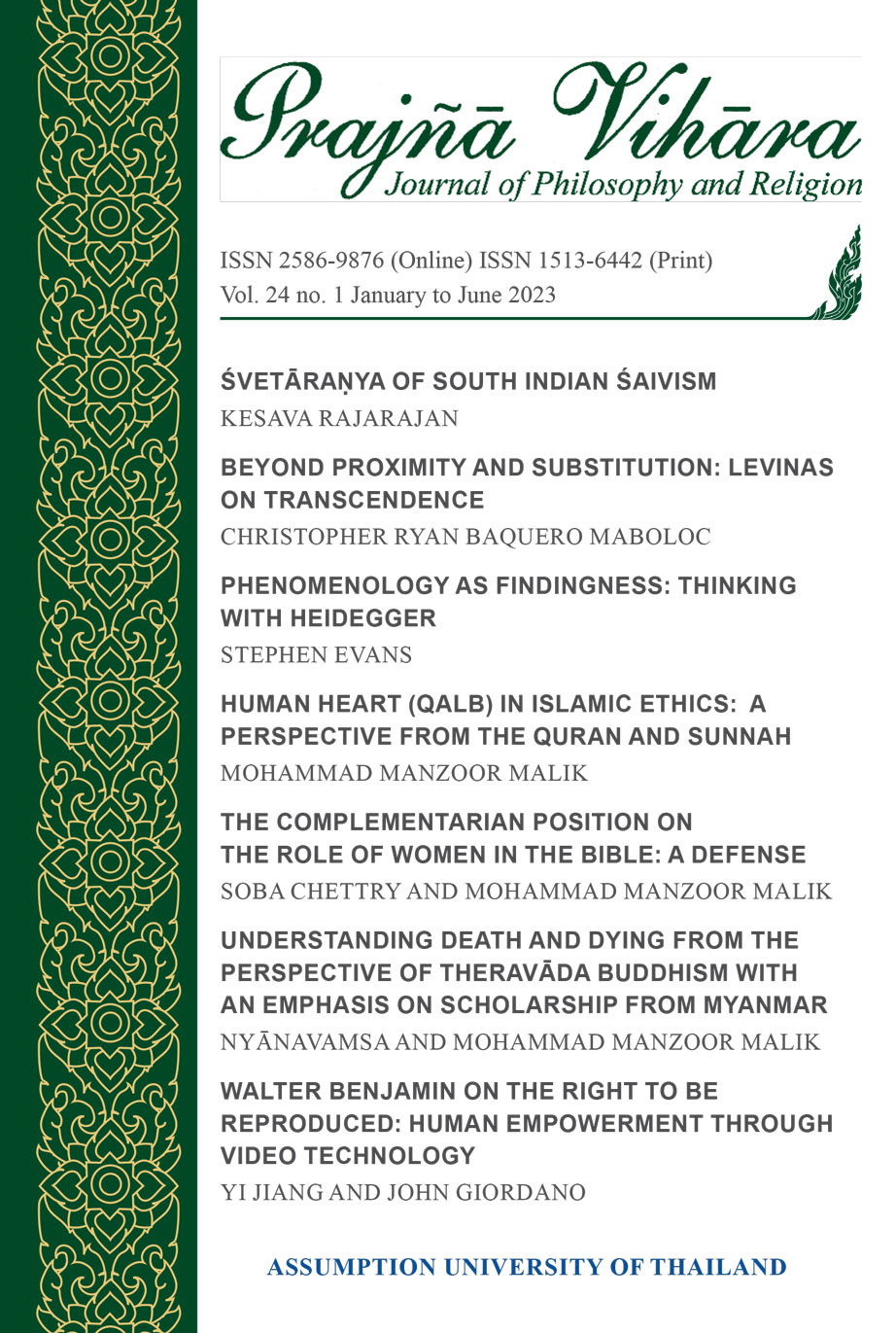HUMAN HEART (QALB) IN ISLAMIC ETHICS: A PERSPECTIVE FROM THE QURAN AND SUNNAH
Abstract
There is a broad discussion concerning the importance of
the self (nafas) in Islamic ethics. This discussion is based
upon the primary sources of Islam, the scripture, and
Sunnah. However, the idea of the human heart (Qalb) is
not so widely discussed, which is considered integral to
the self. This idea needs further exploration concerning
its relationship to ethics. Ethics is an essential part of the
Islamic worldview, and the measure of authentic, ethical
behavior is intentionality which is an attribute of the heart.
The Islamic sources assert that the ethical agent must
possess a ‘sound heart’ that is free of vices and which, by
belief, Iman, provides strength and motivation for good
actions. Therefore, proper ethical behavior emanates
from the heart. The critical point is that intentionality as
the property of the heart matters in Islamic ethics because
ethical accountability is ultimately before God in Islam.
Therefore, a Muslim is responsible for safeguarding
his heart from temptations and vices. The hearts can
experience sickness and hardness through repeatedly
sinning. Therefore, a Muslim should keep his heart clean
from vices. In ethical decision-making, the heart’s purity
will lead to good actions and better understanding. The
heart has intellectual and cognitive powers that can help
make ethical decisions.
References
Al-Sijistani, Suleiman Bin Al-Ash’ath. Sunan Abi Dawood. Edited by
Shu’aib Al-Arnaout and Muhammad Kamel Qarah Belli. 1st ed.
Dar Al-Risalah Al-Alamiyah, 2009.
Al-Bukhari, Mohammad Isma’il. Al-Adab Al-Mufrad. Edited by Mohammad
Fouad Abdul Baqi. 3rd ed. Beirut: Dar AlBashaer Al-Islamiyyah.,
Al-Bukhari, Mohammad Isma’il. Sahih Al-Bukhari. Edited by Mohammad
Zuhair Al-Nasser. 1st ed. Dar Touq Al-Najat, 2001.
Al-Tirmidhī, Muḥammad Ibn ʿĪsā. Sunan Al-Tirmidhi (Al-Jami’ Al-Kabeer).
Edited by Ahmad Mohammad Shakir, Mohammad Fouad Al-
Baki, and Ibrahim Autwah Awaz. 2nd ed. : Sharikat Maktabatan
Wamatbaeat Mustafaa Albabi Alhalabii, 1975.
Albayhaqi, Abu Bakr. Al-Sunan Al-Kubraa. Edited by Muhamad Abdul
Qadir Aetaa. Dar Alkutub Al-Elmiyah, Beirut, - Lilbanat, 2003.
An-Nasai, Ahmad Bin ’Ali. Sunan An-Nasai. Edited by Abdul Fatah Abu
Guddah. 2nd ed. Maktab almatbueat Al’iislamiat., 1986.
Bin Mālik, Mālik Bin Anas. Muwatta Imam Malik. Edited by Mohammad
Fouad Baqi. Beirut: Dar Ihya al-Turath al-Arabi, 1985.
Dhuhli, Ahmad Ibn Hanbal al-. Musnad Ahmad Ibn Hanbal. Edited by
Shoab Arnawot and Adel Murshid. Al-Resala Foundation, 2001.
Ibn Kathīr, Abū al-Fiḍā’‘Imād ad-Dīn Ismā‘Īl. Tafsīr Al-Qurʾān al-ʿAẓīm.
Edited by Mohammad Huyayn. Dar-Alkutub Al-Elmiyah., 1372.
Ibn Qayyim al-Jawzīyah, Muḥammad Ibn Abi Bakr. Al-Jawab al-Kafi Li-
Man Sa’ala “an al-Dawa” al-Shafi. Morocco: Dar-ul-Marifah, 1997.
Ibn Mājah, Abū ʿAbd Allāh Muḥammad. Sunan Ibn Majah. Edited by
Mohamed Fouad Abdel Baqi. Dar “Ihya” Alkutub Alearabiat - Faisal
Issa Al-Babi Al-Halabi, n.d.
Nisaburi, Muslim Ibn Al-hajjaj al-. Sahih Muslim. Edited by Mohamed
Fouad Abdel Baqi. Beirut: Dar Ihya al- Turath al-Arabi, n.d.
The Quran.
Downloads
Published
Issue
Section
License
Consent to Publish and Transfer of Copyright
By publishing in Prajñā Vihāra, the author agrees to transfer and assign to Assumption University of Thailand as the Publisher of the Journal, the copyright to the Article in any form, including any and all rights, interests and claims related to it.
The author does retain the following rights:
- The right to make further copies of the published article for their use in classroom teaching.
- The right to reuse all or part of the published article in a compilation of his or her own works or in textbooks of which they are the author or coauthor.
- The right to make copies of the published article for internal distribution within their academic institution.
- All proprietary rights other than copyright, such as patent rights.
- The Article is his or her original work, and has not been published previously and is not under consideration for publication elsewhere.
- It does not contain any matter that is obscene, libelous, or contrary to law.
- They have obtained the necessary license or written authority and paid any and all related fees for the use and reproduction of text, tables, illustrations and other copyrighted work from the owners of the intellectual property rights, and can furnish the Publisher copies of the license/written authority and proof of payment of related fees upon the signing of this Agreement.
- They have the consent of the Co-Authors of the article upon the signing of this Agreement.
- In the event that they intend to republish, reprint or translate all or part of the Article in other publications, they will secure the prior written permission from the journal Editor.
Prajñā Vihāra adopts the Creative Commons Attribution (CC BY-NC-ND) license





